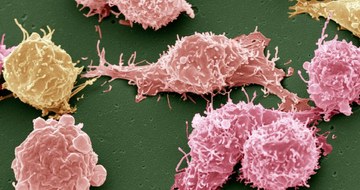Abstract
Background
A single, high priming dose of tremelimumab (anti-cytotoxic T lymphocyte–associated antigen 4) plus durvalumab (anti–programmed cell death ligand-1), an infusion regimen termed STRIDE (Single Tremelimumab Regular Interval Durvalumab), showed encouraging clinical activity and safety in a phase 2 trial of unresectable hepatocellular carcinoma.
Methods
In this global, open-label, phase 3 trial, the majority of the patients we enrolled with unresectable hepatocellular carcinoma and no previous systemic treatment were randomly assigned to receive one of three regimens: tremelimumab (300 mg, one dose) plus durvalumab (1500 mg every 4 weeks; STRIDE), durvalumab (1500 mg every 4 weeks), or sorafenib (400 mg twice daily). The primary objective was overall survival for STRIDE versus sorafenib. Noninferiority for overall survival for durvalumab versus sorafenib was a secondary objective.
Results
In total, 1171 patients were randomly assigned to STRIDE (n=393), durvalumab (n=389), or sorafenib (n=389). The median overall survival was 16.43 months (95% confidence interval [CI], 14.16 to 19.58) with STRIDE, 16.56 months (95% CI, 14.06 to 19.12) with durvalumab, and 13.77 months (95% CI, 12.25 to 16.13) with sorafenib. Overall survival at 36 months was 30.7%, 24.7%, and 20.2%, respectively. The overall survival hazard ratio for STRIDE versus sorafenib was 0.78 (96.02% CI, 0.65 to 0.93; P=0.0035). Overall survival with durvalumab monotherapy was noninferior to sorafenib (hazard ratio, 0.86; 95.67% CI, 0.73 to 1.03; noninferiority margin, 1.08). Median progression-free survival was not significantly different among all three groups. Grade 3/4 treatment-emergent adverse events occurred for 50.5% of patients with STRIDE, 37.1% with durvalumab, and 52.4% with sorafenib.
Conclusions
STRIDE significantly improved overall survival versus sorafenib. Durvalumab monotherapy was noninferior to sorafenib for patients with unresectable hepatocellular carcinoma. (Funded by AstraZeneca; ClinicalTrials.gov number, NCT03298451.)

